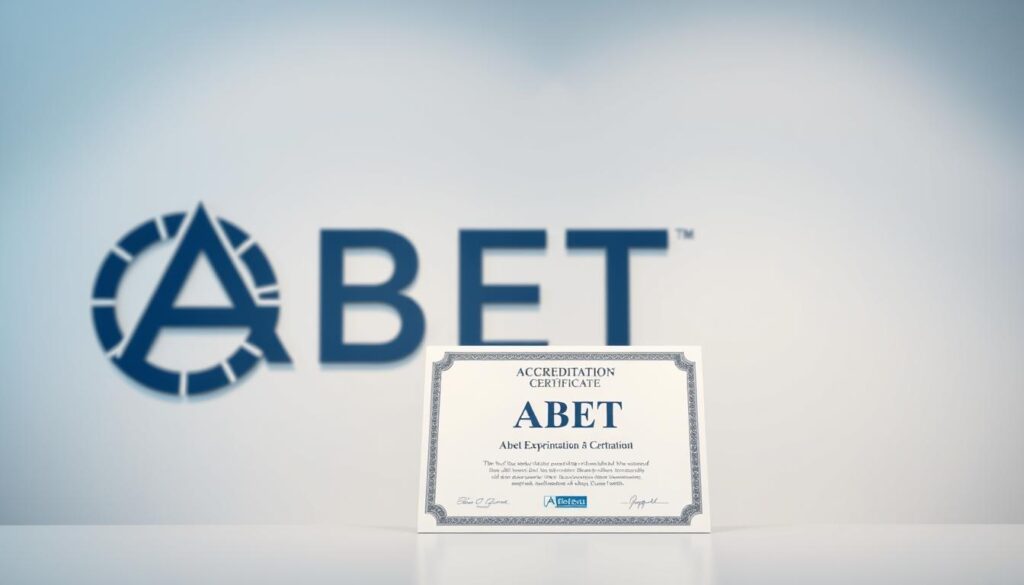Civil engineers play a vital role in modern society, designing, constructing, and maintaining infrastructure that impacts our daily lives. According to Liberty University, civil engineering is the foundation of nearly all branches of modern engineering, making it one of the most flexible disciplines.
The demand for skilled civil engineers continues to grow, and pursuing online courses can be a flexible and accessible way to gain the necessary skills. With low-cost civil engineering e-learning options available, individuals can now acquire knowledge without the financial burden.
By enrolling in best civil engineering courses online, students can explore various roles that civil engineers play, from ensuring clean water and energy to designing safer roads.
Key Takeaways
- Civil engineering is a fundamental discipline with a broad scope.
- Online courses offer flexibility and accessibility.
- Low-cost e-learning options are available.
- Civil engineers play crucial roles in modern society.
- Pursuing online civil engineering courses can be a cost-effective way to gain skills.
The Growing Demand for Online Civil Engineering Education
The demand for online civil engineering education is on the rise, reflecting a broader trend towards digital learning in technical fields. This shift is driven by the need for flexible, accessible, and affordable education that can cater to the diverse needs of students and professionals alike.
Current Trends in Civil Engineering Education
Civil engineering education is evolving, with online programs becoming increasingly popular. Many institutions now offer online civil engineering programs, making it more accessible. For instance, Liberty University offers an online Bachelor of Science in Civil, which includes coursework on structural, geotechnical, transportation, and construction engineering.
Why Online Learning is Gaining Popularity in Technical Fields
Online learning is gaining traction in technical fields due to its flexibility and accessibility. Two key factors contributing to this trend are:
- Accessibility for working professionals
- Technological advancements enabling quality education
Accessibility for Working Professionals
Online civil engineering programs provide working professionals with the opportunity to enhance their skills and knowledge without having to leave their jobs. This is particularly beneficial in a field like civil engineering, where practical experience is invaluable. As Dr. Jane Smith, a renowned civil engineer, notes, “Online education allows us to balance our work commitments while advancing our education, making it a win-win situation.”
Technological Advancements Enabling Quality Education
Advances in technology have significantly improved the quality of online education. With the use of sophisticated learning management systems, virtual labs, and interactive tools, online civil engineering programs can now offer a comprehensive and engaging learning experience. “The integration of technology in online education has been a game-changer,” says John Doe, an online education expert. “It has enabled institutions to provide high-quality education that is accessible to a wider audience.”
The growth of online civil engineering education is not just a trend; it’s a response to the changing needs of the industry and the workforce. As the demand continues to grow, it’s essential for educational institutions to innovate and adapt, ensuring that online programs meet the high standards of the civil engineering profession.
Benefits of Pursuing Civil Engineering Courses Online

Online civil engineering programs provide a range of advantages, from flexibility to global learning opportunities. These benefits make online education an attractive choice for many aspiring civil engineers.
Flexibility and Convenience
One of the primary benefits of online civil engineering courses is the flexibility they offer. Students can access course materials and lectures at any time, allowing them to study at their own pace. This flexibility is particularly beneficial for those who are balancing their studies with work or other commitments.
Work-Study Balance Opportunities
Online civil engineering programs enable students to maintain a work-study balance more effectively. By being able to study online, individuals can continue working while pursuing their education, ensuring a steady income and practical experience in their field.
Geographic Freedom
Geographic freedom is another significant advantage of online civil engineering courses. Students are not limited by their location and can enroll in programs offered by institutions worldwide.
Learning from Industry Experts Worldwide
This global access means that students can learn from industry experts and renowned professors from around the globe, enhancing their educational experience and broadening their professional network.
The benefits of online civil engineering courses are clear. With affordable online civil engineering programs and best online civil engineering courses available, students have a wide range of options to choose from, catering to different needs and preferences.
- Flexibility to study at your own pace
- Opportunity to balance work and study
- Access to global industry experts
- Variety of affordable programs available
Affordable Online Courses in Civil Engineering: What to Expect
Online civil engineering programs are becoming increasingly popular due to their affordability and flexibility. As the demand for skilled civil engineers continues to grow, the need for cost-effective educational options has become more pressing.
What Defines “Affordable” in Online Education
“Affordability” in online civil engineering courses is often defined by factors such as tuition rates, program length, and the availability of financial aid. For instance, Liberty University’s online programs are designed to be budget-friendly, with undergraduate tuition rates frozen for the last 10 years. This approach makes quality education more accessible to a wider audience.
Key factors that contribute to the affordability of online courses include:
- Competitive tuition rates
- Reduced overhead costs
- Flexible payment plans
- Scholarships and grants
Cost Comparison: Online vs. Traditional Civil Engineering Programs
When comparing online and traditional civil engineering programs, the cost difference can be significant. Online programs often have lower tuition rates and eliminate the need for relocation or commuting, which can save students a substantial amount of money.
Value Proposition of Budget-Friendly Courses
Budget-friendly online civil engineering courses offer a compelling value proposition by providing quality education at a lower cost. These programs are designed to equip students with the necessary skills and knowledge to succeed in the field, without the financial burden associated with traditional programs.
As Dr. Jane Smith, Dean of Engineering at Liberty University, notes, “Our online civil engineering programs are designed to be affordable and flexible, without compromising on the quality of education.”
By choosing an affordable online civil engineering course, students can achieve their educational goals without breaking the bank.
Types of Online Civil Engineering Courses Available
![]()
The world of online civil engineering education offers a diverse range of courses catering to different career goals and educational backgrounds. Students can choose from various program types, each designed to meet specific professional needs.
Certificate Programs
Certificate programs in civil engineering are ideal for professionals seeking specialized knowledge in areas like structural analysis or construction management. These programs are typically shorter than degree programs and can be completed online, making them convenient for working professionals.
Associate Degrees
Associate degrees in civil engineering provide a foundational education, covering topics such as mathematics, physics, and engineering principles. Online associate degree programs offer flexibility for students who need to balance their studies with other responsibilities.
Bachelor’s Degree Programs
Bachelor’s degree programs in civil engineering are comprehensive, covering a wide range of topics including geotechnical engineering, transportation engineering, and environmental engineering. Online bachelor’s programs are available from accredited institutions, providing students with the flexibility to complete their degree online.
Master’s Level Courses
Master’s level courses in civil engineering are designed for professionals who have already completed their undergraduate degree and are seeking advanced knowledge. These programs can lead to specializations in areas like structural engineering or water resources engineering.
Professional Development and Continuing Education
Continuing education and professional development courses are available for civil engineers who need to stay updated with the latest technologies and practices. These courses can be found on platforms like Coursera, edX, and Udemy, offering flexible learning options.
| Program Type | Duration | Focus Areas |
|---|---|---|
| Certificate Programs | Several months | Specialized knowledge in areas like structural analysis or construction management |
| Associate Degrees | 2 years | Foundational education in civil engineering principles |
| Bachelor’s Degree Programs | 4 years | Comprehensive education covering various civil engineering topics |
| Master’s Level Courses | 2-3 years | Advanced knowledge in specialized areas like structural engineering |
| Continuing Education | Varies | Staying updated with the latest technologies and practices |
By offering a range of program types, online civil engineering education caters to the diverse needs of students and professionals. Whether you’re looking to start your career or advance your existing one, there’s an online civil engineering course available to suit your goals.
Top Providers of Budget-Friendly Civil Engineering Courses
Several institutions now offer affordable online civil engineering courses, making quality education more accessible. These providers cater to a wide range of needs, from certificate programs to full degree courses.
Accredited Universities with Affordable Online Programs
Many accredited universities have embraced online education, offering civil engineering courses at affordable rates. These institutions provide a robust curriculum that is recognized industry-wide.
State Universities with Distance Learning Options
State universities have been at the forefront of offering distance learning options, including civil engineering programs. For instance, Old Dominion University offers an online Bachelor of Science in Engineering Technology with a focus on Civil Engineering. This program is designed to equip students with the necessary skills for the civil engineering field.
Community Colleges with Transfer Pathways
Community colleges also play a crucial role in providing affordable online civil engineering courses, often with transfer pathways to four-year institutions. These colleges offer an economical starting point for students.
| Institution | Program | Duration | Cost |
|---|---|---|---|
| Old Dominion University | BS in Engineering Technology (Civil Engineering focus) | 4 years | $280 per credit hour |
| Arizona State University | BS in Civil Engineering | 4 years | $520 per credit hour |
| University of Florida | MS in Civil Engineering | 2-3 years | $636 per credit hour |
MOOC Platforms (Coursera, edX, Udemy)
MOOC (Massive Open Online Course) platforms like Coursera, edX, and Udemy have become popular for their affordability and flexibility. They offer a variety of civil engineering courses from top universities worldwide.
For example, Coursera offers a Civil Engineering Specialization by University of Colorado Boulder, which covers fundamental concepts in civil engineering. edX also offers a series of civil engineering courses through its MicroMasters program.
Industry-Specific Training Platforms
Besides traditional academic courses, industry-specific training platforms offer specialized civil engineering courses. These platforms, such as Autodesk and Procore, provide training on specific software and technologies used in the civil engineering industry.
These courses are designed to enhance practical skills and are often more affordable than traditional degree programs.
Essential Considerations for Accreditation and Certification

As you navigate the world of online civil engineering education, it’s essential to grasp the significance of accreditation and certification. These factors play a crucial role in determining the quality and legitimacy of the programs you’re considering.
Importance of ABET Accreditation
ABET accreditation is a hallmark of excellence in civil engineering education. It ensures that the program meets rigorous standards set by the engineering community. For instance, Liberty University’s civil engineering program is accredited by the Engineering Accreditation Commission(s) of ABET, signifying its commitment to providing high-quality education.
Industry-Recognized Certifications
Beyond ABET accreditation, industry-recognized certifications can further validate a program’s relevance and effectiveness. These certifications often indicate that graduates are prepared to meet the demands of the civil engineering profession.
Verifying Credential Legitimacy
To ensure you’re investing in a reputable program, it’s vital to verify the legitimacy of its credentials. This involves checking for ABET accreditation and looking into any industry-recognized certifications the program offers.
Red Flags to Watch For
When evaluating online civil engineering programs, be cautious of those that lack clear information about their accreditation status or industry certifications. Such programs may not provide the quality education you’re seeking.
Financial Aid Options for Online Civil Engineering Students
Financial aid is a crucial consideration for students enrolling in online civil engineering programs. With the rising costs of education, students need to explore various financial assistance options to fund their studies.
Scholarships and Grants
Scholarships and grants are forms of financial aid that do not need to be repaid. Many organizations, including professional civil engineering associations, offer scholarships for civil engineering students. Students can also apply for government grants and institutional grants offered by their universities.
Employer Tuition Assistance Programs
Many employers offer tuition assistance programs as a benefit to their employees. These programs can significantly help in covering the cost of online civil engineering courses. Students should check with their employers to see if such programs are available.
Federal Financial Aid Eligibility
Online civil engineering students are eligible for federal financial aid, including loans and grants. To determine their eligibility, students need to complete the Free Application for Federal Student Aid (FAFSA). For more information on federal financial aid, students can visit online college financial aid resources.
Payment Plans and Financing Options
Many educational institutions offer payment plans and financing options to help students manage their tuition fees. These plans allow students to pay their fees in installments rather than in a lump sum. Students should consult their university’s financial aid office to explore these options.
Popular Specializations in Online Civil Engineering Education

With the advancement of online learning, civil engineering students can now choose from a variety of specializations tailored to their career goals. Online civil engineering programs offer flexibility and depth in several key areas.
Structural Engineering
Structural engineering is a fundamental specialization within civil engineering, focusing on the design and analysis of structures such as buildings, bridges, and tunnels. Online programs in structural engineering cover advanced topics like finite element analysis and structural dynamics.
Transportation Engineering
Transportation engineering involves the planning, design, and operation of transportation systems. Online courses in this field cover traffic engineering, transportation planning, and highway design, preparing students for careers in managing and improving transportation infrastructure.
Environmental Engineering
Environmental engineering is another critical specialization, dealing with the development of sustainable solutions to environmental challenges. Online environmental engineering programs focus on water and wastewater treatment, air quality management, and environmental impact assessment.
Geotechnical Engineering
Geotechnical engineering involves the study of the behavior of earth materials and their application in engineering design. Online geotechnical engineering courses cover topics such as soil mechanics, foundation engineering, and slope stability.
Construction Management
Construction management is a specialization that focuses on the planning, coordination, and supervision of construction projects. Online programs in construction management teach students about project management, construction methods, and construction law.
Emerging Specialties and Interdisciplinary Options
In addition to these traditional specializations, online civil engineering programs are also offering emerging specialties and interdisciplinary options. These include sustainable infrastructure, urban planning, and data analytics in civil engineering. Such interdisciplinary approaches equip students with a broad skill set, making them versatile professionals in a rapidly changing industry.
Some of the key specializations available online include:
- Structural Engineering
- Transportation Engineering
- Environmental Engineering
- Geotechnical Engineering
- Construction Management
Technology Requirements for Successful Online Learning
The key to a successful online learning experience in civil engineering lies in understanding the necessary technology requirements. To ensure a smooth and effective learning process, students must have access to the right hardware, software, and internet connectivity.
Essential Hardware and Software
For online civil engineering courses, students typically need a reliable computer with a modern processor, sufficient RAM, and adequate storage. A laptop or desktop with a recent operating system (Windows 10 or macOS) is usually required. Additionally, students may need specific software, such as:
- CAD programs (e.g., AutoCAD)
- Engineering analysis software (e.g., MATLAB, STAAD)
- Microsoft Office or similar productivity software
Specialized Engineering Programs and Tools
Civil engineering students often require specialized software and tools to complete their coursework. Some common examples include:
- Structural analysis software (e.g., ETABS, SAP2000)
- Geotechnical analysis software (e.g., PLAXIS)
- Hydraulic modeling software (e.g., HEC-RAS)
It’s essential to check with the program or institution for specific software requirements.
Internet Requirements and Technical Support
A stable and fast internet connection is vital for online learning. A minimum speed of 25 Mbps is typically recommended for most online courses. Students should also have access to technical support in case they encounter any issues with their technology or online platform.
By understanding and meeting these technology requirements, students can ensure a successful and productive online learning experience in civil engineering.
Self-Paced vs. Structured Learning: Choosing the Right Format

The flexibility of online learning allows students to choose between self-paced and structured course formats. This choice is crucial in online civil engineering education, where the complexity of the subject matter requires a learning approach that suits individual needs.
Benefits of Self-Paced Programs
Self-paced programs offer flexibility and autonomy, allowing students to complete coursework on their own schedule. This is particularly beneficial for those with work or family commitments. Self-paced learning enables students to review material as many times as needed, ensuring a thorough understanding of complex concepts.
Advantages of Structured Cohort-Based Courses
Structured cohort-based courses, on the other hand, provide a collaborative learning environment. Students learn alongside peers, fostering discussion and teamwork. This format helps students stay motivated and on track, as they are required to meet specific deadlines.
Hybrid Models and Their Flexibility
Hybrid models combine elements of both self-paced and structured learning. For instance, Liberty University offers both 8-week and 16-week courses, providing flexibility for students with different needs. This format allows for a balance between independent study and collaborative learning.
Matching Learning Styles to Course Formats
When choosing a course format, it’s essential to consider individual learning styles. Some students thrive in self-paced environments, while others benefit from the structure and camaraderie of cohort-based courses. Understanding these preferences is key to selecting the most appropriate online civil engineering course.
How Employers View Online Civil Engineering Credentials
The perception of online civil engineering credentials among employers has undergone a significant transformation in recent years. As online education continues to evolve and improve, employers are becoming more accepting of online degrees.
Changing Perceptions in the Industry
Historically, there was a stigma associated with online degrees, with some employers questioning their validity. However, with the rise of reputable online programs and the increasing number of professionals holding online degrees, this perception is changing. Employers are now more focused on the skills and competencies of candidates rather than the mode of their education.
“The quality of online programs has improved dramatically, and employers are taking notice,” says Dr. Jane Smith, a leading expert in civil engineering education. “As a result, online civil engineering credentials are becoming more recognized and respected.”
What Employers Look For Beyond the Degree
Employers are looking beyond the degree to the skills, knowledge, and experience that candidates bring to the table. Key factors include problem-solving abilities, technical skills, and the ability to work collaboratively. Online civil engineering programs that focus on developing these skills are viewed more favorably by employers.
- Technical skills relevant to the industry
- Problem-solving and analytical abilities
- Effective communication and teamwork skills
Demonstrating Competence with Online Credentials
To demonstrate competence, online civil engineering graduates should highlight their relevant skills and experiences. This can be achieved through a strong portfolio, professional certifications, and a demonstrated ability to apply theoretical knowledge in practical settings.
By focusing on these aspects, individuals with online civil engineering credentials can effectively demonstrate their value to potential employers, overcoming any lingering biases against online degrees.
How to Evaluate the Quality of Affordable Civil Engineering Courses

The quality of online civil engineering courses can vary significantly, making it essential to know what to look for when evaluating affordable options. With the rise of online education, numerous programs have emerged, offering a range of civil engineering courses. However, not all programs are created equal.
Instructor Credentials and Experience
One of the primary factors in evaluating the quality of an online civil engineering course is the credentials and experience of the instructors. Look for programs with faculty members who have industry experience and academic qualifications relevant to the course material. For instance, Liberty University’s online civil engineering programs are designed by industry experts, ensuring that students receive relevant and up-to-date knowledge.
Course Content and Curriculum Design
The course content and curriculum design are also critical in assessing the quality of an online civil engineering program. A well-structured curriculum should cover both theoretical foundations and practical applications. It should also be aligned with industry needs and standards.
| Curriculum Aspect | Key Features to Look For |
|---|---|
| Course Structure | Logical progression of topics, balance between theory and practical application |
| Relevance to Industry | Alignment with current industry practices and standards |
| Specializations | Availability of specializations that match your career goals |
Student Reviews and Success Rates
Another important factor is the feedback from current and former students. Look for reviews and testimonials that can provide insights into the strengths and weaknesses of the program. Additionally, check the success rates of graduates, including their employment rates and career advancement.
Industry Relevance and Currency
Finally, it’s essential to evaluate how relevant and current the course content is to the civil engineering industry. Look for programs that incorporate the latest technologies, trends, and standards. This ensures that you receive an education that is relevant to today’s job market.
By carefully evaluating these factors, you can make an informed decision when choosing an affordable online civil engineering course that meets your educational and career needs.
Overcoming Challenges in Online Civil Engineering Education
As online civil engineering courses become more prevalent, understanding how to surmount the associated challenges is crucial. Online civil engineering education offers flexibility and accessibility, but it also presents unique obstacles that students and educators must navigate.
Addressing Hands-On Learning Requirements
One of the significant challenges in online civil engineering education is providing hands-on learning experiences. Traditional civil engineering programs rely heavily on laboratory work and practical training. To address this, many online programs have adopted innovative solutions.
Virtual Labs and Simulations
Virtual labs and simulations have become increasingly sophisticated, allowing students to conduct experiments and gain practical experience remotely. These tools provide a realistic and interactive learning environment.
Local Practicum Arrangements
Some online programs, like Liberty University’s civil engineering program, include on-campus intensives or local practicum arrangements. These provide students with hands-on training and the opportunity to apply theoretical knowledge in real-world settings.
Building Professional Networks Virtually
Building professional networks is crucial in civil engineering, and online students can achieve this through virtual means. Participating in online forums, attending virtual conferences, and joining professional organizations can help students connect with peers and industry professionals.
Time Management and Self-Discipline Strategies
Online learning requires strong time management and self-discipline. Students can benefit from creating structured study schedules and setting clear goals. Utilizing productivity tools and apps can also help in staying organized.
| Challenge | Solution |
|---|---|
| Hands-on learning requirements | Virtual labs and simulations, local practicum arrangements |
| Building professional networks | Virtual forums, conferences, professional organizations |
| Time management and self-discipline | Structured study schedules, productivity tools |
For more information on online civil engineering courses, including those with a focus on structural engineering, visit our website. By leveraging these strategies and resources, online civil engineering students can overcome the challenges associated with this mode of education and achieve success in their careers.
Future Trends in Online Civil Engineering Education

The future of online civil engineering education is poised to undergo significant transformations with the integration of emerging technologies. As the demand for skilled civil engineers continues to grow, online education platforms are adapting to meet the needs of students and professionals alike.
Virtual Reality and Augmented Reality Applications
Virtual Reality (VR) and Augmented Reality (AR) are set to revolutionize the online learning experience by providing immersive and interactive environments. These technologies enable students to engage with complex civil engineering concepts in a more hands-on and experiential way.
AI-Enhanced Learning Experiences
Artificial Intelligence (AI) is being increasingly used to enhance online learning experiences. AI-powered tools can provide personalized learning paths, real-time feedback, and adaptive assessments, making online education more effective and efficient.
Micro-Credentials and Stackable Certificates
The rise of micro-credentials and stackable certificates is changing the way online civil engineering education is delivered. These credentials allow students to acquire specific skills and knowledge in a shorter timeframe, which can be stacked to achieve a larger certification or degree.
Industry-Academia Partnerships
Collaboration between industry partners and academic institutions is becoming more prevalent in online civil engineering education. These partnerships ensure that the curriculum is relevant, up-to-date, and aligned with industry needs, preparing students for the workforce.
| Trend | Description | Impact |
|---|---|---|
| VR/AR Applications | Immersive learning experiences | Enhanced engagement and understanding |
| AI-Enhanced Learning | Personalized learning paths and feedback | Improved learning outcomes |
| Micro-Credentials | Stackable certificates for specific skills | Increased flexibility and relevance |
| Industry-Academia Partnerships | Curriculum aligned with industry needs | Better preparedness for the workforce |
For more information on the future of civil engineering continuing education, visit The Future of Civil Engineering Continuing.
Conclusion: Taking the Next Step in Your Civil Engineering Education
Online civil engineering courses offer a flexible and affordable path to advancing one’s education. With the growing demand for skilled civil engineers, pursuing online education can be a strategic move. Liberty University’s online programs are designed to be accessible and affordable, making quality education available to a wider audience.
As you’ve explored in this article, online civil engineering courses provide numerous benefits, including flexibility, geographic freedom, and a range of specializations. When considering the next steps in your civil engineering education, it’s essential to evaluate the quality of programs, accreditation, and industry relevance.
By taking the next step and exploring affordable online civil engineering programs, you can enhance your skills, boost your career prospects, and contribute to the development of innovative infrastructure projects. Start your journey today and discover the opportunities that online civil engineering education has to offer.
